How Hulu’s 'We Were the Lucky Ones' Compares to Georgia Hunter’s Book
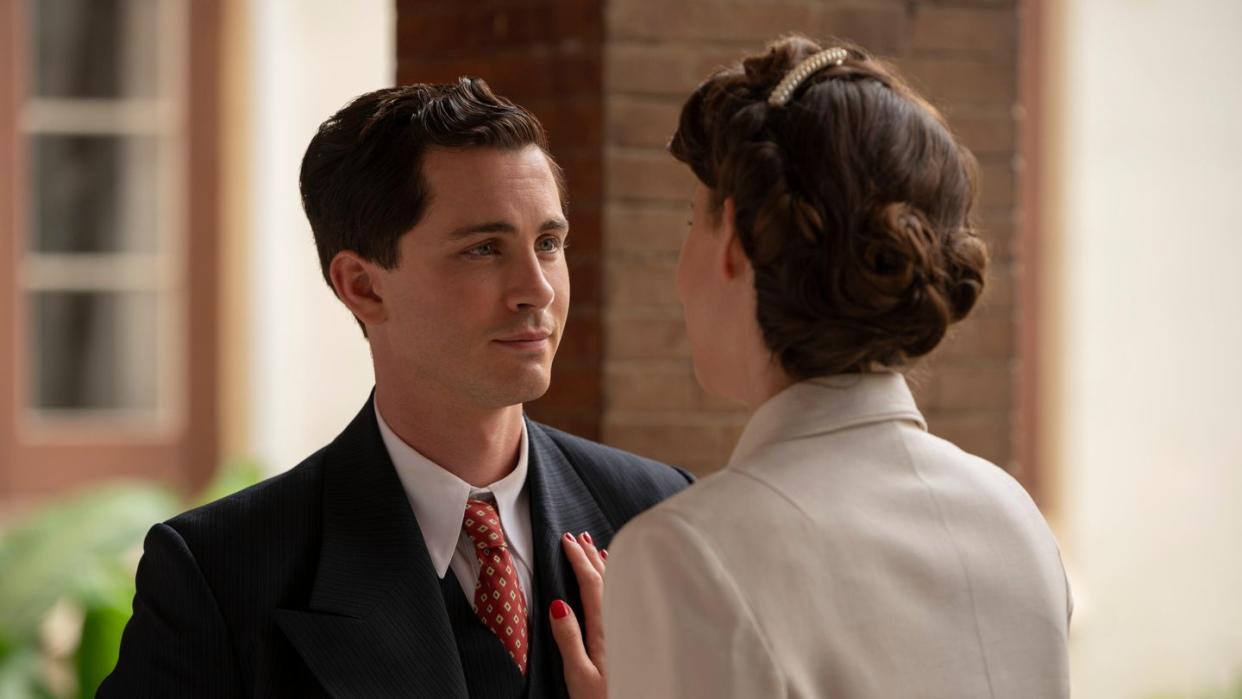
"Hearst Magazines and Yahoo may earn commission or revenue on some items through these links."
Spoilers below.
Nearly a century later, World War II and the Holocaust remain an oft-revisited setting for historical media—novels, films, and TV series alike. It’s not difficult to understand why, of course: It’s an unspeakably dark period of world history, spanning horrors so depraved and suffering so vast that we can scarcely comprehend them. And it’s all the more relevant at a time when yet another war is unfolding for all the world to see.
To some, Holocaust narratives might seem overwrought and overdone—but We Were the Lucky Ones, both the Hulu show and the Georgia Hunter novel it’s based on, challenges this take. Based on Hunter’s own family history, the wrenching ensemble drama tells the story of how the entire Polish-Jewish Kurc family—seven in all, not counting spouses and infant children—improbably, miraculously survived the Holocaust. In her novel, Hunter recounts in excruciating detail the trials faced by each member of the family as they are repeatedly torn apart and thrust back together by the ravages of war. In Hulu’s limited series, these events vividly unfold across the TV screen, daring us to bear witness to the horrors of Hitler’s reign.
Or maybe that’s not quite right. Perhaps the show is in fact daring us to look away, to admit to ourselves that we are unable to stomach the darkest recesses of our collective history. After all, We Were the Lucky Ones pulls no punches: while Germany was the principal architect of the genocide, the book and series alike remind us how willing other developed countries were to shut their eyes—or even celebrate—in the face of Jewish suffering.
As many of us know, history is ever repeating itself. It is difficult to watch Lucky Ones and not think of the carnage currently unfolding in Gaza—a military campaign described by
U.N. officials as genocidal—and the ensuing protests on college campuses across the U.S., which makes the show feel hauntingly relevant today.
While Hunter’s book is based on her scrupulous research into the real experiences of her grandfather’s immediate family, she ultimately chose to tell her story not as a work of nonfiction but as a novel. Likewise, while the series largely hews to the plot of the book, there are some subtle yet meaningful departures from the story of the novel. What’s changed? Read on to find out.
Story Structure
As one might expect of a book that follows all the members of a large immediate family, Hunter’s novel is very much an ensemble story. Her chapters alternate perspectives, granting us windows into Addy’s, Halina’s, Bella’s, Mila’s, and others’ experiences. We even see chapters from Mila’s (Hadas Yaron) infant daughter Felicia’s point of view. While the show also takes care to follow all the Kurcs’ stories, it also narrows in somewhat, prioritizing two POVs—Addy’s (Logan Lerman) and Halina’s (Joey King)—above all others.
Understandably, then, most of the other changes in the series appear to have been made in the service of strengthening the throughlines of those two characters. It’s a smart choice, bringing necessary cohesion to a sprawling story that—though it works on the page—might otherwise have been difficult to follow on television.
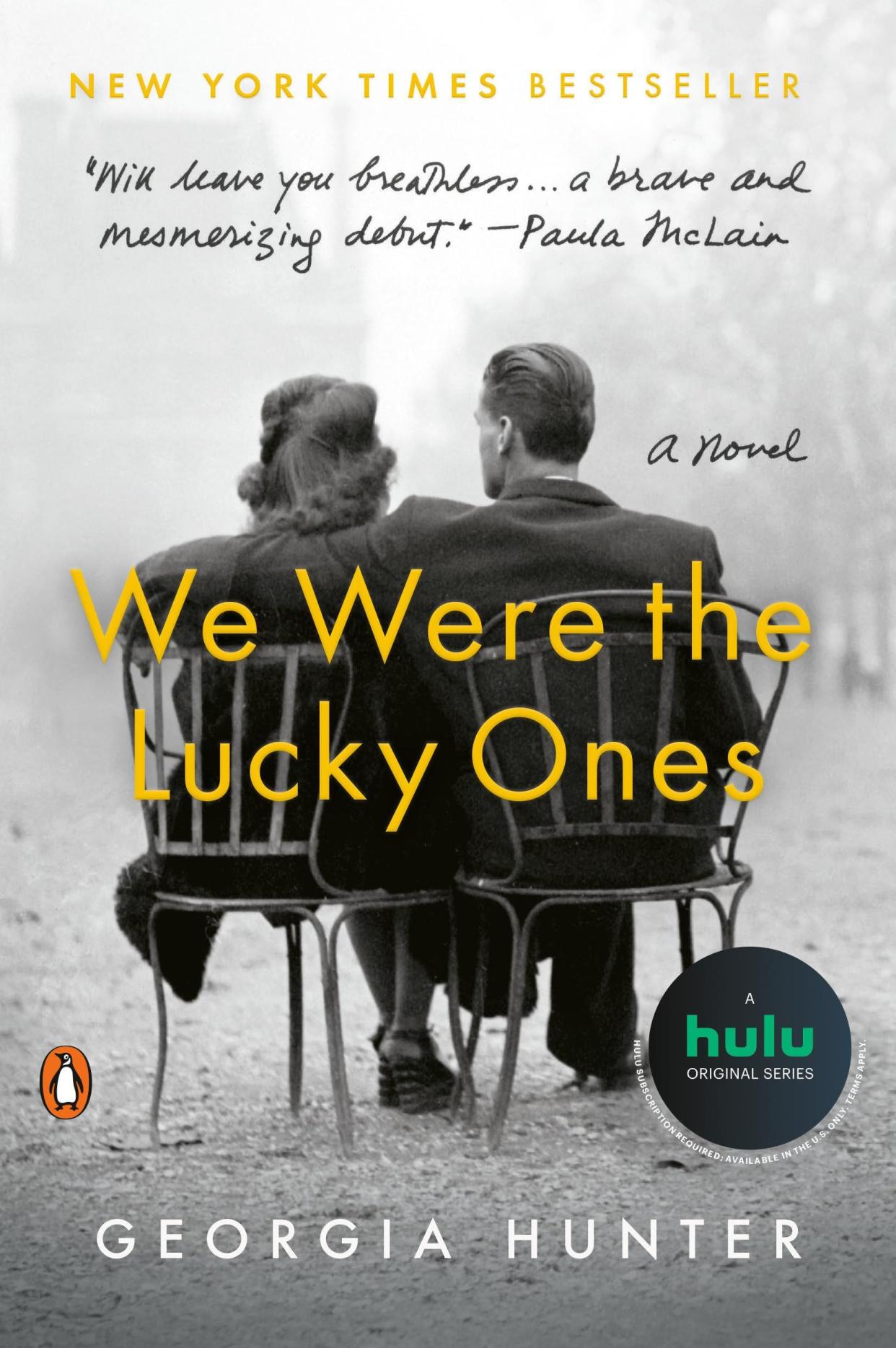
We Were the Lucky Ones: A Novel
amazon.com
$9.56
The First Passover
As for concrete alterations to the story, the first significant change occurs at the very start of the series. The book begins in early 1939, with Addy receiving a letter from his mother, Nechuma (Robin Weigert), urging him not to make the treacherous journey back to their Polish hometown of Radom for Passover. While Addy and other characters often reminisce on past Passovers when the entire family was able to celebrate together, these events are already in the past by the start of page one.
By contrast, the series picks up a year earlier, on Passover in 1938, which allows us to start the story with an image of the entire family celebrating as a unit. This portrait of a time that many of the characters spend the next eight years mourning and reminiscing upon throws their ensuing suffering into sharper relief. What’s more, it also allows us to catch glimpses of the Kurcs’ family dynamics before the ravages of war and persecution took over: We see Addy’s and baby sister Halina’s enduring friendship, cemented by their shared birthday; we witness Mila’s pregnancy with Felicia, as well as the early days of Halina’s flirtation with the Kurcs’ lodger—and her eventual husband—Adam (Sam Woolf); we even get to see eldest son Genek (Henry Lloyd-Hughes) before his marriage to Herta (Moran Rosenblatt), whom we soon learn is convinced that her husband’s family doesn’t like her. We get to see the Kurcs as people, not victims—complete with all the minor dramas that make up a life, the fleeting concerns that will soon fall away as Europe hurtles headlong into a genocide.
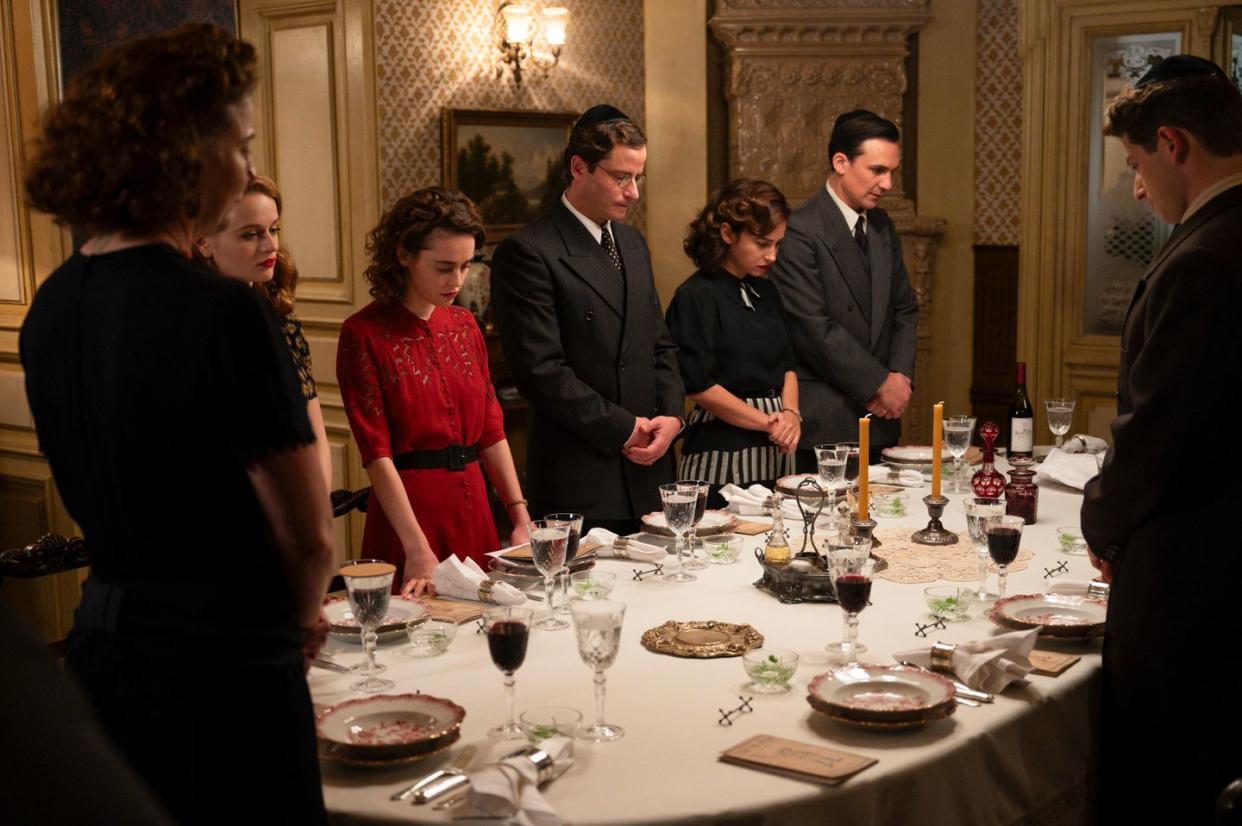
Sisters in Spirit
As a result of the series’ expansion of Halina’s role, several scenes that belonged to other book characters are absorbed into her storyline. Early on, both versions of the story, the “fighting-age” men in Poland—Genek, Jakob (Amit Rahav), Mila’s husband Selim (Michael Aloni), and Adam—are summoned to Lvov, Poland, to fight in the Polish army against the invading Axis powers. In the book, after Poland’s defeat, Jakob’s girlfriend Bella (Eva Feiler) and her sister Anna make the dangerous journey from German-controlled Random to Soviet-controlled Lvov to join their sweethearts, with Halina and her cousin Francka following suit a while later.
In the series, however, Bella and Halina make the trip together. This allows for the series to showcase Halina’s relationship to her brother’s girlfriend—an angle scarcely, if at all, explored in the book. On the show, we witness an enduring sense of intimacy between the two women, complete with the occasional sibling-esque squabble.
Will They or Won’t They
Halina’s courtship with Adam is also changed significantly in Lucky Ones’ adaptation from page to screen. In the original novel, their relationship is firmly established from the very beginning: They are an item, and their commitment to each other never wavers. In the show, well, it’s a little more complicated.
Onscreen, while Halina and Adam have already begun seeing each other by the time the war breaks out, Halina still appears to be nursing some doubts about their relationship. Following a fight about Adam’s decision to go fight in Lvov rather than remain in Radom, the fate of their romance is up in the air, and when Halina reaches Lvov, she tells Adam that she would like to remain friends. Instead of a romantic relationship, theirs becomes one of co-conspirators as Halina entreats Adam to bring her into the underground Polish resistance movement. (In the book, Adam is an active member of the resistance, but Halina does not play an active role in their efforts.) The two repeatedly clash over their differing perspectives on their romance, but they don’t reunite as a couple until later, when Halina rescues Adam from one of the Jewish ghettos after he has been captured—an event that also takes place in the book.
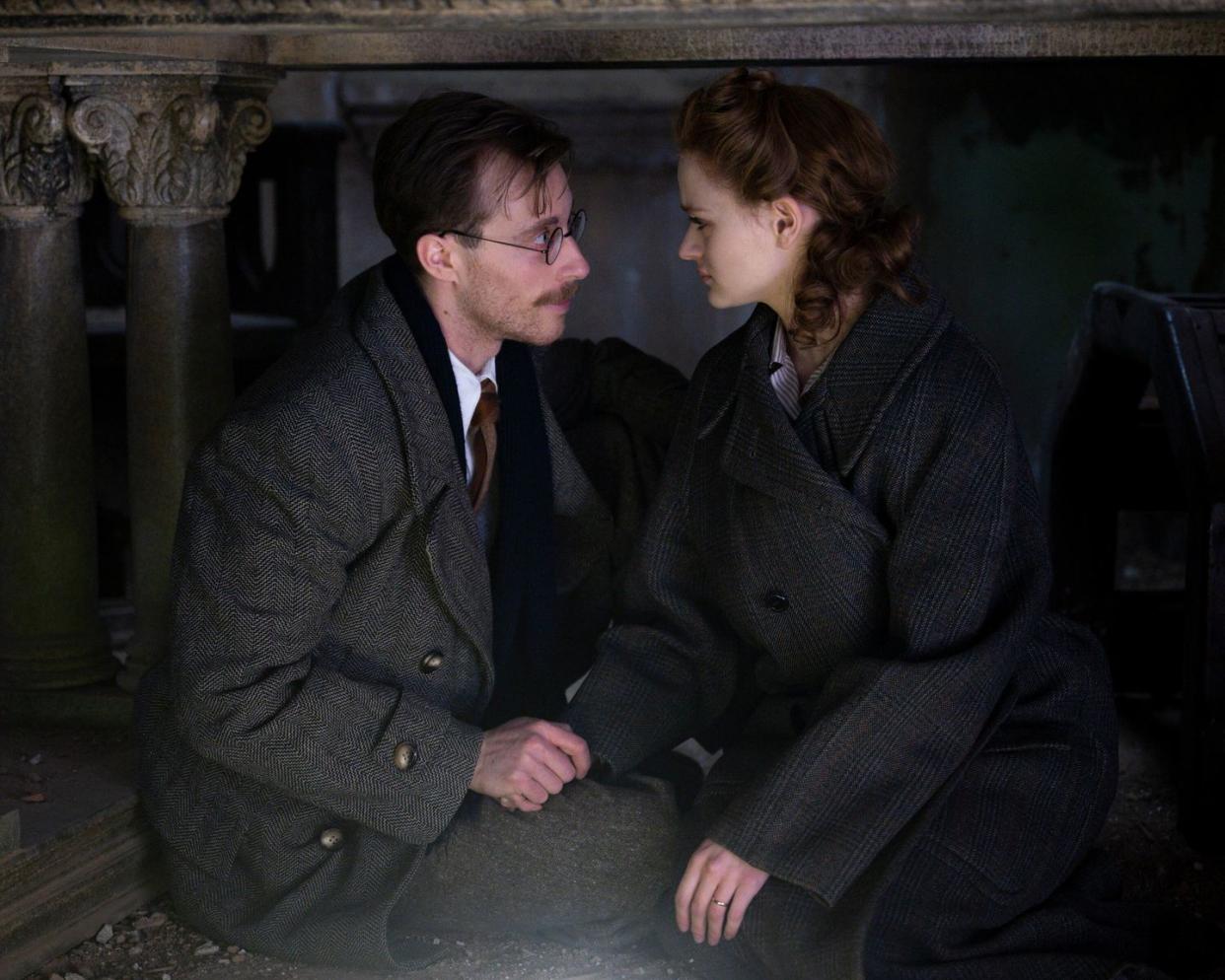
The Boy Next Door
Halina isn’t the only one whose love life grows more complicated. Early on in both the book and the series, the family loses track of Mila’s husband Selim, and everyone gradually comes to believe that the worst has happened to him. In both versions of the story, Mila learns how to make do as a single mother to Felicia, often relying upon Isaac (Ido Samuel)—a family friend who comes to serve in Nazi-occupied Radom’s Jewish Police Service—for support. In the book, Isaac doesn’t play much of a role. In the series, however, Isaac’s conflicted position becomes clear: Is he a line of defense between the Jews of the city and the occupying power, as he clearly hopes, or is he a tool of the Nazi regime?
But it gets more complicated than that. While we know little of Mila and Isaac’s particular relationship in the book—we only know that he is known to the whole family and does his best to help them whenever he can—this changes in the series. Over the course of several episodes, it becomes clear to viewers that Isaac is in love with Mila.
Addy’s Adventures
Though he is one of the central characters in the series, Addy’s story is changed very little from how it plays out in the book—which makes sense, since Addy spends the entire war separated from the rest of his family. However, a few added nuances are brought in, particularly as pertains to his ill-fated engagement with fellow Jewish refugee Eliska (Lihi Kornowski), whom he meets while trying to emigrate to Rio.
In both versions of the story, Addy and Eliska’s relationship is passionate but short-lived, in large part because Eliska chooses not to dwell on what they’ve all left behind in Europe—unlike Addy, who is tormented by it. While they are together, it is clear that Eliska’s mother, Madame Lowbeer (Marin Hinkle), disapproves of Addy, and she is relieved when they break off their relationship.
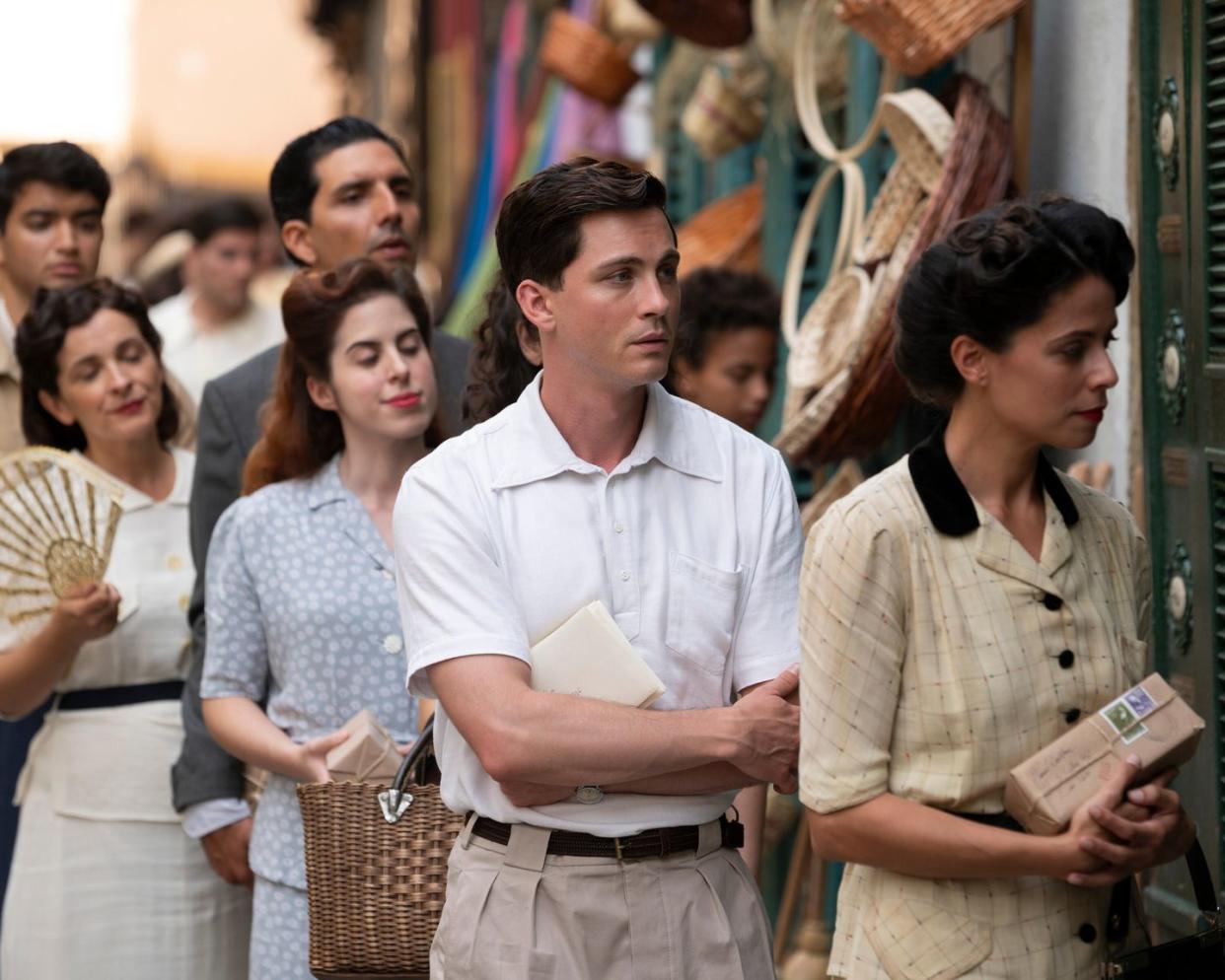
In the book, Addy’s and Eliska’s story comes to a close when their engagement does. It’s an isolated chapter in Addy’s story, nothing more. In the series, however, two additional scenes cast a different light on their entanglement. In the first, on an afternoon when Addy becomes drunk and enraged at Brazilian society’s apathy in the face of the Holocaust, Madame Lowbeer spots him staggering into the street and takes him home to sober up and put himself together. In a quiet yet moving conversation—during which we learn that Eliska is engaged to someone new—we also come to see that Madame Lowbeer’s judgment of Addy is complicated by a sense of quiet admiration. In fact, it is Madame Lowbeer who helps Addy realize that looking towards the future isn’t the same thing as forsaking his family; in fact, it’s a way of investing in the hope of their eventual reunion.
In the final episode, Addy—already married with a child on the way—reunites with Eliska herself one last time. Like him, she is married and expecting a baby. It is at their lunch together that Addy receives news of a telegram containing information about his family’s survival. Before this happens, though, Addy and Eliska share a sweet moment, not reminiscing about their past romance but daydreaming about the future—one in which their children might even grow up together, happily and freely, side by side.
You Might Also Like
